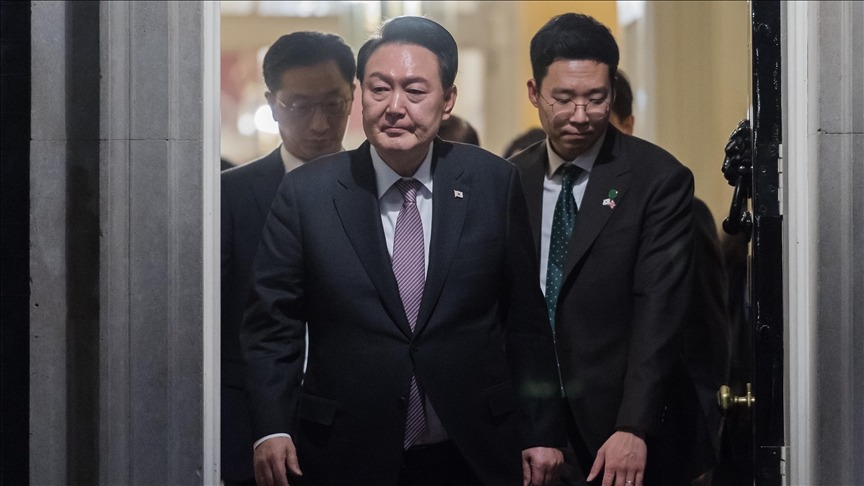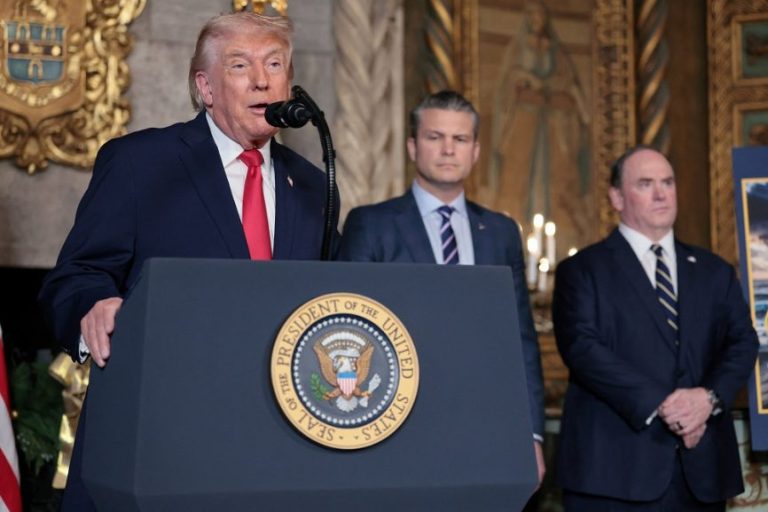
Former South Korean President Yoon Suk Yeol Jailed Again Over Martial Law Attempt and Insurrection Charges. Image: Anadolu Ajansi.
(The Post News)– Former South Korean President Yoon Suk Yeol was returned to jail on Thursday after a Seoul court issued him a warrant for detention in relation to his disputed attempt to declare martial law in December. This marks a dramatic twist in what is likely to become one of the most inflammatory political and judicial dramas in the nation’s recent past.
The Seoul Central District Court approved the warrant on the special prosecutor’s request, stating that Yoon, 64, might destroy evidence. The warrant was issued four months after Yoon was freed on a technicality from detention for 52 days earlier this year.
Yoon is in serious trouble now with hefty criminal charges of insurrection, obstruction of justice, abuse of authority, and tampering with evidence. His martial law declaration—issued provisionally on December 3, 2024—was denounced by the opposition as an attempted coup before being overturned later by parliament in a dramatic late-night session, despite a military blockade of the National Assembly.
Yoon’s new arrest makes him the first South Korean president to have been jailed, released, and rearrested in a matter of months. A former star prosecutor who became influential as a hardline conservative, Yoon was impeached and removed from office by the Constitutional Court in April following his attempt at martial law being met with mass popular outrage and political chaos.
He was rearrested at the Seoul Detention Center, about 12 miles south of the capital, where he is now confined to a 10-square-meter solitary cell. He is required by authorities to wear a khaki prison uniform, sleep on a floor mattress, and follow hard prison routines. During a heatwave that is afflicting the nation, he will have to cope with a small electric fan that runs only during the day. A government official said Thursday morning’s breakfast for inmates included steamed potatoes and mini cheese breads.
Yoon missed his Thursday court hearing on his rebellion trial. Prosecutors have indicated they are building a broader case that includes charges Yoon fabricated documents to justify declaring martial law and used encrypted “secret phones” to speak with military commanders.
They also allege that he ordered the erasure of presidential server documents and illegally used security personnel like a private army to block law enforcers from effecting their first arrest of him during January.
The freshly elected president, Lee Jae Myung, promptly signed on to an exceptional investigation into Yoon’s actions and linked allegations regarding his government and his relatives. The probe is being led by exceptional prosecutor Cho Eun-suk, who clarified that Yoon was questioned twice before an arrest warrant was filed over the weekend.
According to South Korean law, Yoon may now be detained for an extended period before he can be tried. He may be held for as long as 20 days as prosecutors pursue new indictments. In the event that he is recharged, detention can be for up to six months until a preliminary court ruling. A conviction of insurrection may result in life imprisonment or even the death penalty.
Yoon has persisted in defending his decision to implement martial law as an inevitable step to combat “anti-state” liberal forces. His lawyers criticized the arrest on political grounds as part of a hasty investigation.
However, the precipitous fall of the ex-president from power is a harbinger of a complicated legacy. South Korea has experienced presidents with ignominious ends to their terms in office, but Yoon’s situation of defiance, mass protests, secret communication, and likely treason has left the country stunned.
More than 1,000 of his supporters gathered outside the courthouse on Wednesday, shouting his name and waving national flags. Media and political observers packed the courtroom despite his absence on Thursday.
With new indictments in the pipeline and potentially further charges on the cards, Yoon’s political career is surely at an end. As his rebellion trial continues apace, prosecutors are also looking into charges that Yoon deliberately escalated tensions with North Korea so that he would have a pretext for rule by fiat—adding potentially another explosive element to an already record-breaking case.



